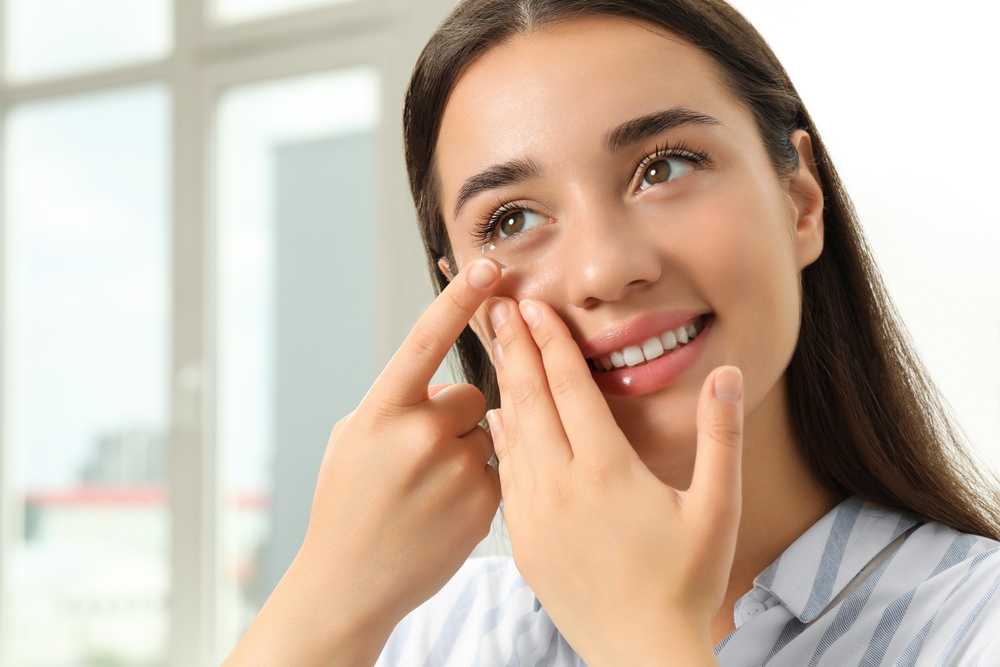
You will likely first use glasses when you know you have a vision problem like myopia or hyperopia. When you start using them, you are glad—even delighted—at how well you can see. Then a little later, you decide to try contact lenses, and the world changes again. You start to see better than you ever thought possible and think contacts are excellent.
They are amazing, and many Americans agree. According to the CDC, millions of Americans use contact lenses. However, some people start to notice something wrong when they have their contacts on. Their eyes start feeling drier than they used to.
Are Your Contacts Making Your Eyes Dry?
If you are using your contact lenses and you notice your eyes feeling dry, there is a chance you may be suffering from dry eye syndrome. It is a condition where the eyes cannot stay hydrated during the day. Usually, you have some symptoms like a gritty feeling in your eyes and redness.
Dry eye syndrome is a common condition that occurs due to issues with tears. Sometimes, it is caused by insufficient tears, and other times by unstable tears. What you may be experiencing is contact lens-induced dry eye syndrome. Wearing contact lenses has been shown to cause this form of dry eye in some people. You may be one of them.
So, what can you do?
Solutions for Contact Lens-Induced Dry Eye
First, you need to see an eye doctor for a correct diagnosis before you pursue any medical solutions. Your eye doctor will examine you and let you know if you have an issue with your tears. Note that, according to a study by Optometry and Vision Science, nearly half of all contact lens users develop dry eyes. They may suggest solutions if the problem is solely linked to your contact lenses.
Lens Materials
Not all contact lenses comprise the same materials. Some are made from silicon, while others are from hard plastic. It could be that the contact lenses you are using have materials that stimulate dryness. Also, some contact lenses work better for people with dry eyes. For instance, silicone-based hydrogel lenses retain more water and prevent evaporation. They may work better for dry eyes than regular hydrogel lenses.
Lens Type
Daily-use lenses are worn for a day and then disposed of, while extended-use lenses can go for up to 30 days. Extended lenses usually collect protein deposits from your eye that can cause your eyes to feel dry. Daily-use lenses work better, and your dry eye disappears.
Lens Water Content
Different soft lenses have different water content. The water content is critical in how your eyes feel after wearing them. A lens with a high water content is more likely to cause dry eye than one with a lower content. When you first put these lenses on, they send more water into the eye, but the longer you have them on, the drier they become.
Experts advise trying out different lenses until you find one that works best.
Lens Size
The size of the lens also plays a role in how they affect dry eye syndrome. Commonly, lenses are only as big as your iris or smaller. These lenses sit on the surface of the cornea. Scleral lenses are much larger and sit on the white part of the eye.
They are great for dry eye syndrome because they usually form a small dam of tears at the center between them and the cornea. The dam of tears keeps the eye hydrated throughout the day, preventing dryness.
To learn if your contact lenses are making your eyes dry, call Enochs Eye Care, Clarity Vision of Suffolk at (757) 638-2015 to discuss your questions or book an appointment today.
















